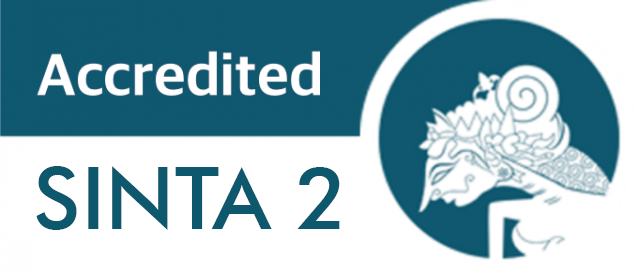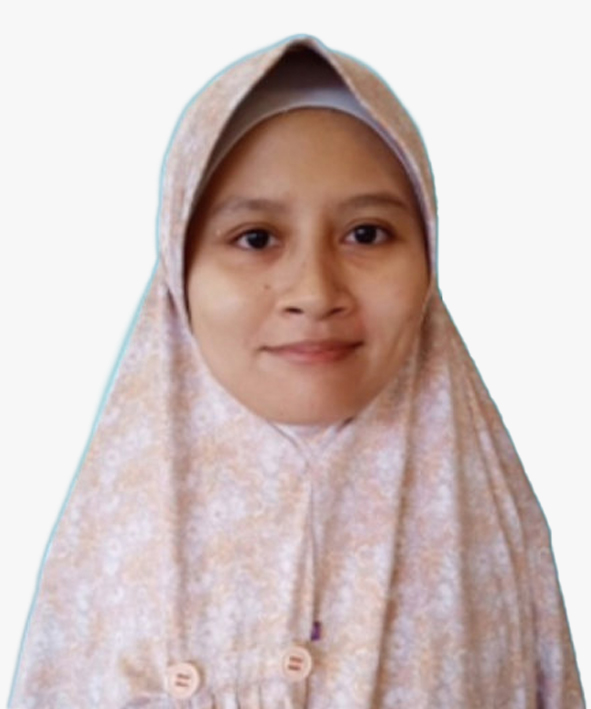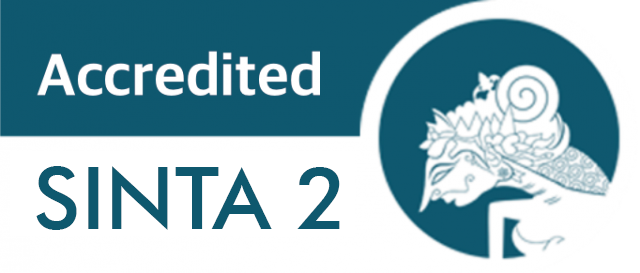Validation and reliability testing of Reflective Functioning Questionnaire (RFQ) Indonesian Version
Introduction: Reflective function refers to the capacity to comprehend emotions, beliefs, and behaviors in oneself and others. Mental disorders are frequently associated with deficits in mentalizing capabilities. These deficits compromise an individual’s capacity for self-reflection and understanding of mental states, impeding one’s ability to regulate both mental states and interpersonal relationships. The Reflective Functioning Questionnaire (RFQ) is a practical tool to measure reflective function, but it has not yet been adapted into Indonesian, a crucial step toward addressing the needs of local populations. This study aimed to develop an Indonesian version of the RFQ with robust validity and reliability. Methods: The English RFQ was translated into Indonesian using standard guidelines, including forward and backward translation by certified translators. Content and face validity were assessed through expert panel reviews to ensure cultural and linguistic relevance. Construct validity was evaluated using confirmatory factor analysis (CFA), and reliability testing was conducted using Cronbach’s Alpha. A pilot study with 10 subjects was conducted to refine the instrument, followed by testing with a sample of 100 participants. Results: The final Indonesian RFQ consists of 11 items across two subscales: RFQu and RFQc. CFA indicated a good model fit (χ² = 1.16, p = 0.55, and RMSEA = 0.041). Reliability testing showed strong internal consistency, with Cronbach’s Alpha values of 0.89 for RFQc and 0.87 for RFQu. Conclusion: The modified Indonesian RFQ demonstrated excellent validity and reliability, providing a robust tool for assessing reflective function in clinical and research settings.
Introduction
Reflective function (also known as mentalization) is the capability to comprehend internal wishes and their relation to internal values and reaction tendency. It is essential for social functioning, interpersonal interaction, and adapting to the external world. Normally developed through interaction with a significant figure, reflective function defect occurs when attachment development is disrupted, especially due to mental disorder in parents or extreme external conditions.
Dynamically, reflective function plays a significant role in personality organization by shaping perception of reality. A tendency toward extreme negativity or positivity can challenge realistic and effective problem-solving. Consequently, misperceptions may lead to interpersonal difficulties and emotional regulation issues.
Factors influencing mentalizing include psychiatric disorders (e.g., concentration levels, reality-testing abilities), biological factors (e.g., intelligence), psychological factors (e.g., attachment style, personality traits), as well as sociodemographic and cultural factors (e.g., education, occupation, religion, culture, stress levels)[1],[2]. High levels of concentration and intact reality-testing ability are necessary for accurate situational appraisal[3]–[6]. Biologically, intelligence reflects overall brain capacity for thought and imagination. Psychologically, attachment styles and personality traits impact empathy development. Socially, profession, religion, and culture influence internalized values, while high stress may impair mentalizing ability[4],[7].
Mental disorders are often linked to deficits in mentalizing capabilities. Impaired mentalizing compromise an individual's capacity for self-reflection and understanding of mental states, hindering regulation of mental states and interpersonal relationships[1],[8]–[10]. When mental states cannot be effectively regulated, self-soothing during distress or maintaining a positive outlook becomes challenging[11]. Consequently, interpersonal relations suffer, limiting one’s ability to empathize, maintain emotional boundaries, and respect personal limits[12]. Identifying these deficits during early psychiatric evaluation helps clinicians understand personality structure and devise short- and long-term therapeutic strategies.
Mentalizing impairments generally fall into two categories: hypomentalizing and hypermentalizing (or pseudomentalizing). Hypomentalizing, observed in depression, antisocial personality disorder, and autism spectrum disorders, involves difficulties interpreting cognitive, affective, and motivational cues in interpersonal interactions[11]–[14]. Hypermentalizing, observed in borderline personality disorder, paranoid schizophrenia, and paranoid personality disorder, is characterized by overconfidence in understanding mental states, often based on assumptions without objective evidence[1],[15].
Genuine mentalizing involves recognition that mental states are complex and often difficult to fully understand. Individuals skilled in mentalizing integrate realistic cues, such as behavior, gestures, facial expressions, and muscle tension, with internal awareness, fostering an adaptive understanding of observed mental states[3],[16].
Given the disparity between the number of psychiatrists and patients with mental health disorders, time constraints often hinder thorough evaluation of mentalizing abilities due to the demand for psychiatric services. Therefore, an efficient and effective assessment tool is essential for timely diagnosis and intervention. The Reflective Functioning Questionnaire (RFQ) offers a practical method for assessing general mentalizing abilities in approximately 30 minutes, covering both completion and scoring. This instrument demonstrates reliability and validity in both general and clinical populations[13]. The RFQ holds promise for supporting Indonesian psychiatrists in conducting concise assessments of mentalizing capacity, facilitating a comprehensive diagnostic and therapeutic framework for patients. However, the RFQ has not yet been translated or validated for the Indonesian language or adapted for clinical populations with mental disorders, highlighting the need for linguistic and psychometric validation. This study aims to develop an Indonesian version of the RFQ that ensures both reliability and validity.
Methods
Respondents were patients, both male and female, aged 18 to 59 years, who receive services from the Department of Psychiatric at Cipto Mangunkusumo National Hospital. Participants were diagnosed with mental disorders according to the Pedoman Penggolongan Diagnosis Gangguan Jiwa III (PPDGJ III) critera, as determined by attending physicians on scheduled assessments. Additional inclusion criteria included: fluency in reading and writing Bahasa Indonesia, competent consciousness, attentional focus, reality testing ability, and a minimum education level of junior high school. Respondents were excluded if they refused to participate or had diagnosis of mental retardation or organic mental disorders. Recruitment continued until a sample size of 100 subjects was reached, using a non-probability consecutive sampling method.
This study involved a validation and reliability assessment of the RFQ, structured across three stages: translation, validity testing, and reliability testing. It was conducted from January 2018 to February 2019 at the Adult Psychiatry Outpatient Clinic of Cipto Mangunkusumo National Referral General Hospital (RSUPN Cipto Mangunkusumo). Content validity assessment was performed in February 2018, with data collection spanning January to February 2019.
Ethical approval was obtained from the local Ethics Committee. Initial permission to translate and validate the RFQ was requested via email from the original instrument creators, Peter Fonagy and Patrick Luyten[13]. The instrument and manual were translated from English to Indonesian by two independent translators unfamiliar with the questionnaire. The translations were reviewed by a panel of three experts to ensure cultural and social relevance to the Indonesian context. This refined version was then back-translated into English by two additional translators, independent of the original team. The back-translation was sent to Peter Fonagy for content verification, and his feedback guided further revisions. Once no meaningful differences remained between the English and Indonesian versions, the instrument was deemed ready for data collection.
During the data collection phase, the translated RFQ was pilot-tested on 10 participants. Researchers introduced the RFQ to the head of the Adult Psychiatry Clinic and explained the study's objective. Eligible patients were approached and briefed about the purpose, benefits, and
D. Kealy, S. M. Rice, Z. E. Seidler, J. L. Oliffe, J. S. Ogrodniczuk. “Reflective functioning and men’s mental health: Associations with resilience and personal growth initiative”. Stress Health. Vol. 37, no. 4, pp. 706-714. Oct, 2021. doi: 10.1002/smi.3030
J. R. Keefe, K. N. Levy, J. F. Sowislo, D. Diamond, S. Doering, S. Hörz-Sagstetter, A. Buchheim, M. Fischer-Kern, JF. Clarkin. “Reflective functioning and its potential to moderate the efficacy of manualized psychodynamic therapies versus other treatments for borderline personality disorder.” J Consult Clin Psychol. Vol. 91, No.1, pp. 50-56. Jan, 2023. doi: 10.1037/ccp0000760.
T. Mösler, S. Poppek, C. Leonhard, and W. Collet, “Reflective Skills, Empathy, Wellbeing, and Resilience in Cognitive-Behavior Therapy Trainees Participating in Mindfulness-Based Self-Practice/Self-Reflection,” Psychol. Rep., vol. 126, no. 6, pp. 2648–2668, Dec. 2023, doi: 10.1177/00332941221094482.
K. I. Wendelboe, J. Smith-Nielsen, A. C. Stuart, P. Luyten, and M. Skovgaard Væver, “Factor structure of the parental reflective functioning questionnaire and association with maternal postpartum depression and comorbid symptoms of psychopathology,” PLOS ONE, vol. 16, no. 8, p. e0254792, Aug. 2021, doi: 10.1371/journal.pone.0254792.
S. Müller, L. P. Wendt, C. Spitzer, O. Masuhr, S. N. Back, and J. Zimmermann, “A Critical Evaluation of the Reflective Functioning Questionnaire (RFQ),” J. Pers. Assess., vol. 104, no. 5, pp. 613–627, Sep. 2022, doi: 10.1080/00223891.2021.1981346.
S. Malcorps et al., “Assessing reflective functioning in prospective adoptive parents,” PLOS ONE, vol. 16, no. 1, p. e0245852, Jan. 2021, doi: 10.1371/journal.pone.0245852.
K. I. Wendelboe, J. S. Nielsen, A. C. Stuart, and M. S. Væver, “The parental reflective functioning questionnaire: Infant version in fathers of infants and association with paternal postpartum mental health,” Infant Ment. Health J., vol. 43, no. 6, pp. 921–937, Nov. 2022, doi: 10.1002/imhj.22023.
D. A. Ulvestad, M. Selsbakk Johansen, E. Hartveit Kvarstein, G. Pedersen, T. Wilberg. “A borderline focused Reflective Functioning measure - Interrater reliability of the Mentalization Breakdown Interview”. Nord J Psychiatry. Vol. 77, no. 4, pp. 360-366. May, 2023. doi: 10.1080/08039488.2022.2123040.
J. Yates, P. Tucker, A. M. Johnson. “Child temperament and physical activity in young children”. Child Care Health Dev. Vol. 49, No. 5, pp. 898-905, Sep, 2023. doi: 10.1111/cch.13098.
L. Bakkum, C. Schuengel, S. L. Foster, R. M. P. Fearon, R. Duschinsky. “Trauma and loss in the Adult Attachment Interview: Situating the unresolved state of mind classification in disciplinary and social context”. Hist Human Sci. Vol. 36, No. 3-4, pp. 133-157, Feb, 2023. doi: 10.1177/09526951221143645.
E. Di Giacomo, E. Andreini, O. Lorusso, and M. Clerici, “The dark side of empathy in narcissistic personality disorder,” Front. Psychiatry, vol. 14, p. 1074558, Mar. 2023, doi: 10.3389/fpsyt.2023.1074558.
Bateman A and Fonagy P, Mentalization-based treatment for personality disorders: a practical guide, 1st ed. Oxford: Oxford University Press, 2016.
P. Fonagy et al., “Development and Validation of a Self-Report Measure of Mentalizing: The Reflective Functioning Questionnaire,” PLOS ONE, vol. 11, no. 7, p. e0158678, Jul. 2016, doi: 10.1371/journal.pone.0158678.
K. Krämer, A. Vetter, U. Schultz-Venrath, K. Vogeley, and S. Reul, “Mentalization-Based Treatment in Groups for Adults With Autism Spectrum Disorder,” Front. Psychol., vol. 12, p. 708557, Aug. 2021, doi: 10.3389/fpsyg.2021.708557.
P. J. Eslinger et al., “The neuroscience of social feelings: mechanisms of adaptive social functioning,” Neurosci. Biobehav. Rev., vol. 128, pp. 592–620, Sep. 2021, doi: 10.1016/j.neubiorev.2021.05.028.
T. Stoica and B. Depue, “Shared Characteristics of Intrinsic Connectivity Networks Underlying Interoceptive Awareness and Empathy,” Front. Hum. Neurosci., vol. 14, p. 571070, Dec. 2020, doi: 10.3389/fnhum.2020.571070.
K. A. Whitney, P. H. Shepard, J. Mariner, B. Mossbarger, and S. M. Herman, “Validity of the Wechsler Test of Adult Reading (WTAR): Effort Considered in a Clinical Sample of U.S. Military Veterans,” Appl. Neuropsychol., vol. 17, no. 3, pp. 196–204, 2010, doi: 10.1080/09084282.2010.499787.
S.F. Cheugn, I. J. A. Pesigan. FINDOUT: Using Either SPSS Commands or Graphical User Interface to Identify Influential Cases in Structural Equation Modeling in AMOS. Multivariate Behav Res. 2023 Sep-Oct;58(5):964-968. doi: 10.1080/00273171.2022.2148089. Epub 2023 Jan 5. PMID: 36602096.
R. Luong, J. K. Flake. Measurement invariance testing using confirmatory factor analysis and alignment optimization: A tutorial for transparent analysis planning and reporting. Psychol Methods. 2023 Aug;28(4):905-924. doi: 10.1037/met0000441. Epub 2022 May 19. PMID: 35588078.
L. Cai, S. W. Chung, T. Lee. Incremental Model Fit Assessment in the Case of Categorical Data: Tucker-Lewis Index for Item Response Theory Modeling. Prev Sci. 2023 Apr;24(3):455-466. doi: 10.1007/s11121-021-01253-4. Epub 2021 May 10. PMID: 33970410; PMCID: PMC10115722.
B. Sarasati and O. Nurvia, “Emosi dalam tulisan”, Jurnal Psibernetika. Vol. 14, no. 1, pp. 40-48, 2021, doi: 10.30813/psibernetika.v14i1.2745
D. Jayani, “Jumlah Penduduk DKI Jakarta 2019 Mencapai 10,5 Juta Jiwa.” [Online]. Available: https://databoks.katadata.co.id/demografi/statistik/de75356cb0956f7/jumlah-penduduk-dki-jakarta-2019-mencapai-105-juta-jiwa#:~:text=Penduduk%20DKI%20Jakarta%20pada%202019,sebanyak%205%2C2%20juta%20jiwa.
S. Müller, L. P. Wendt, C. Spitzer, O. Masuhr, S. N. Back, J. Zimmermann. “A Critical Evaluation of the Reflective Functioning Questionnaire (RFQ)”. J Pers Assess. Vol. 104, No. 5, pp. 613-627. Sep-oct, 2022. doi: 10.1080/00223891.2021.1981346.
F. Bizzi, A. Riva, J. L. Borelli, S. Charpentier-Mora, M. Bomba, D. Cavanna, R. Nacinovich. “The Italian version of the Reflective Functioning Questionnaire: Validity within a sample of adolescents and associations with psychological problems and alexithymia”. J Clin Psychol. Vol. 78, No. 4, pp. 503-516. Apr, 2022. doi: 10.1002/jclp.23218.
E. Ruiz-Parra et al., “The Spanish version of the reflective functioning questionnaire: Validity data in the general population and individuals with personality disorders,” PLOS ONE, vol. 18, no. 4, p. e0274378, Apr. 2023, doi: 10.1371/journal.pone.0274378.
E. Karagiannopoulou, F. S. Milienos, A. Desatnik, C. Rentzios, V. Athanasopoulos, and P. Fonagy, “A short version of the reflective functioning questionnaire: Validation in a greek sample,” PLOS ONE, vol. 19, no. 2, p. e0298023, Feb. 2024, doi: 10.1371/journal.pone.0298023.
Z. Horváth, O. Demetrovics, B. Paksi, Z. Unoka, and Z. Demetrovics, “The Reflective Functioning Questionnaire–Revised– 7 (RFQ-R-7): A new measurement model assessing hypomentalization,” PLOS ONE, vol. 18, no. 2, p. e0282000, Feb. 2023, doi: 10.1371/journal.pone.0282000.
A. Kamza, P. Luyten, and K. Piotrowski, “Psychometric evaluation of the Parental Reflective Functioning Questionnaire in Polish mothers,” PLOS ONE, vol. 19, no. 4, p. e0299427, Apr. 2024, doi: 10.1371/journal.pone.0299427.
T. Lee, P. Grove, C. Garrett, T. Whitehurst, O. Kanter-Bax, and K. Bhui, “Teaching trainee psychiatrists a Mentalization-Based Treatment approach to personality disorder: effect on attitudes,” BJPsych Bull., vol. 46, no. 5, pp. 298–302, Oct. 2022, doi: 10.1192/bjb.2021.50.
N. Ogińska-Bulik and P. Michalska, “The role of empathy and cognitive trauma processing in the occurrence of professional posttraumatic growth among women working with victims of violence,” Int. J. Occup. Med. Environ. Health, vol. 35, no. 6, pp. 679–692, Dec. 2022, doi: 10.13075/ijomeh.1896.01945.
D. Meier, W. Tschacher, A. Frommer, F. Moggi, and M. Pfammatter, “Growth curves of common factors in psychotherapy: Multilevel growth modelling and outcome analysis,” Clin. Psychol. Psychother., vol. 30, no. 5, pp. 1095–1110, Sep. 2023, doi: 10.1002/cpp.2864.
E.-K. Ong, U.-T. E. Tan, M. Chiam, and W. S. Sim, “The employment of art therapy to develop empathy and foster wellbeing for junior doctors in a palliative medicine rotation - a qualitative exploratory study on acceptability,” BMC Palliat. Care, vol. 23, no. 1, p. 84, Apr. 2024, doi: 10.1186/s12904-024-01414-6.
P. Capdevila-Gaudens, J. M. García-Abajo, D. Flores-Funes, M. García-Barbero, and J. García-Estañ, “Depression, anxiety, burnout and empathy among Spanish medical students,” PLOS ONE, vol. 16, no. 12, p. e0260359, Dec. 2021, doi: 10.1371/journal.pone.0260359.
K. D. Neff, “Self-Compassion: Theory, Method, Research, and Intervention,” Annu. Rev. Psychol., vol. 74, no. 1, pp. 193–218, Jan. 2023, doi: 10.1146/annurev-psych-032420-031047.
P. Capdevila-Gaudens, J. M. García-Abajo, D. Flores-Funes, M. García-Barbero, and J. García-Estañ, “Depression, anxiety, burnout and empathy among Spanish medical students,” PLOS ONE, vol. 16, no. 12, p. e0260359, Dec. 2021, doi: 10.1371/journal.pone.0260359.
K. Edler, B. Behrens, L. Wang, and K. Valentino, “Validation of the Parental Reflective Functioning Questionnaire among maltreating and nonmaltreating mothers.,” J. Fam. Psychol., vol. 37, no. 3, pp. 324–334, Apr. 2023, doi: 10.1037/fam0001045.
F. C. Ryding and D. J. Kuss, “The use of social networking sites, body image dissatisfaction, and body dysmorphic disorder: A systematic review of psychological research.,” Psychol. Pop. Media, vol. 9, no. 4, pp. 412–435, Oct. 2020, doi: 10.1037/ppm0000264.
P. Fonagy et al., “Mentalization for Offending Adult Males (MOAM): study protocol for a randomized controlled trial to evaluate mentalization-based treatment for antisocial personality disorder in male offenders on community probation,” Trials, vol. 21, no. 1, p. 1001, Dec. 2020, doi: 10.1186/s13063-020-04896-w.
Copyright (c) 2025 Mahaputra Mahaputra, Sylvia Detri Elvira, Petrin Redayani Lukman, Martina Wiwiek Nasrun, Tjhin Wiguna

This work is licensed under a Creative Commons Attribution-ShareAlike 4.0 International License.
1. Copyright of this journal is possession of the Author, by the knowledge of the Editorial Board and Journal Manager, while the moral right of the publication belongs to the author.
2. The journal allows the author(s) to retain publishing rights without restrictions.
3. The articles are published under a Creative Commons Attribution Share-Alike (CC BY-SA) license. Many research funding bodies prefer the CC BY-SA license because it allows for maximum dissemination and re-use of open access materials. Users are free to share (copy, distribute, and transmit) and remix (adapt) the contribution under this license, including for commercial purposes, as long as they attribute the contribution in the manner specified by the author or licensor.
























